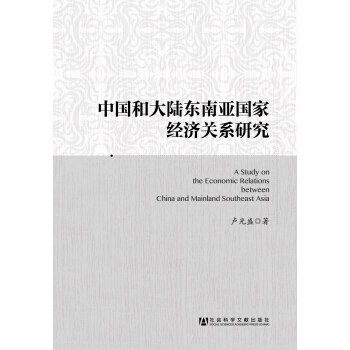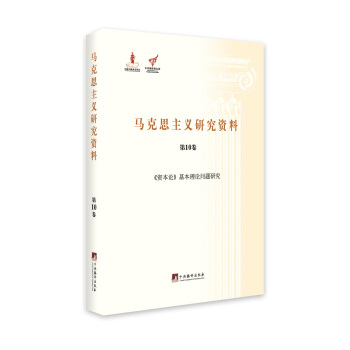![管理科學與工程經典教材:工程經濟學(英文版·第5版) [Contemporary Engineering Economics(5th Edition)]](https://pic.qciss.net/11110270/rBEHZ1CI2YQIAAAAAADZ2ukBZ_IAACemABIh40AANny211.jpg)

具體描述
內容簡介
《管理科學與工程經典教材:工程經濟學(英文版·第5版)》深入淺齣地介紹瞭現代工程師應必備的工程經濟學專業基礎知識:是針對各類工科學生的入門教材。全書內容豐富、邏輯嚴密,充分運用理工學生較強的數理基礎,通過大量的運算實例闡述理論與方法。自1993年初版以來,及時吸納最新研究成果,並隨實踐和計算手段的演進而不斷修訂更新,一直為眾多高校采用。全書以學生為中心,以幫助學生掌握原理和方法為目的。探討瞭很多當前的熱點問題,引導讀者運用所學知識解決現實世界中的問題。
本書配套中文版已推齣,供讀者參照閱讀。
作者簡介
錢.S.帕剋(Chan S. Park),奧本大學教授。於佐治亞理工學院(Georgia Institute of Technology)獲得工業工程博士學位。研究領域包括經濟決策分析、實物期權與金融工程、能源經濟學等。邵穎紅,同濟大學經濟管理學院副教授,主要從事技術經濟及管理專業領域的研究。主持和參與10多個國傢級研究項目和若乾政府和企業谘詢項目。在《管理工程學報》、《數量經濟與技術經濟研究》等核心雜誌發錶文章20多篇。著書兩部,主編和參編教材7部,代錶性作品有《公共項目投融資分析》、《公共項目的經濟評價與決策》、《工程經濟學》等。
內頁插圖
目錄
前言第1篇 財務決策基礎
第1章 工程經濟決策
第2章 利率和經濟等值
第3章 學會理財之道
第2篇 企業和項目資産的投資評價
第4章 現值分析
第5章 年度等值分析
第6章 收益率分析
第3篇 項目現金流量分析
第7章 決策相關的成本概念
第8章 摺舊和公司稅
第9章 建立項目現金流量
第4篇 風險與不確定性處理
第10章 通貨膨脹對現金流量的影響
第11章 項目風險和不確定性
第12章 實物期權分析
第5篇 工程經濟學專題
第13章 更新決策
第14章 資本預算決策
第15章 服務部門的經濟分析
精彩書摘
Decisions made during the engineering design phase of product development determinethe majority of the costs associated with the manufacturing of that product (some say that
this value may be as high as 85%). As design and manufacturing processes become more
complex, engineers are making decisions that involve money more than ever before. Thus,
the competent and successful engineer in the twenty-first century must have an improved
understanding of the principles of science, engineering, and economics, coupled with relevant
design experience. Increasingly, in the new world economy, successful businesses
will rely on engineers with such expertise.
Economic and design issues are inextricably linked in the product/service life cycle.
Therefore, one of my strongest motivations for writing this text was to bring the realities
of economics and engineering design into the classroom and to help students integrate
these issues when contemplating many engineering decisions. Of course my underlying
motivation for writing this book was not simply to address contemporary needs, but to
address as well the ageless goal of all educators: to help students to learn. Thus, thoroughness,
clarity, and accuracy of presentation of essential engineering economics were
my aim at every stage in the development of the text.
Although it contains little advanced math and few truly difficult concepts, the introductory
engineering economics course is often a curiously challenging one for the sophomores,
juniors, and seniors who take it. There are several likely explanations for this
difficulty.
1. The course is the student’s first analytical consideration of money (a resource with
which he or she may have had little direct contact beyond paying for tuition, housing,
food, and textbooks).
2. The emphasis on theory may obscure for the student the fact that the course aims,
among other things, to develop a very practical set of analytical tools for measuring
project worth. This is unfortunate since, at one time or another, virtually every
engineer—not to mention every individual—is responsible for the wise allocation
of limited financial resources.
3. The mixture of industrial, civil, mechanical, electrical, and manufacturing engineering,
and other undergraduates who take the course often fail to “see themselves”
in the skills the course and text are intended to foster. This is perhaps less
true for industrial engineering students, whom many texts take as their primary
audience, but other disciplines are often motivationally shortchanged by a text’s
lack of applications that appeal directly to them.
This text aims not only to provide sound and comprehensive coverage of the concepts of
engineering economics but also to address the difficulties of students outlined above, all
of which have their basis in inattentiveness to the practical concerns of engineering economics.
More specifically, this text has the following chief goals:
1. To build a thorough understanding of the theoretical and conceptual basis upon
which the practice of financial project analysis is built.
2. To satisfy the very practical needs of the engineer toward making informed financial
decisions when acting as a team member or project manager for an engineering
project.
3. To incorporate all critical decision-making tools—including the most contemporary,
computer-oriented ones that engineers bring to the task of making informed
financial decisions.
4. To appeal to the full range of engineering disciplines for which this course is often
required: industrial, civil, mechanical, electrical, computer, aerospace, chemical,
and manufacturing engineering, as well as engineering technology.
前言/序言
用戶評價
這本《工程經濟學(第5版)》對我來說,真是一次意料之外的收獲。我本來隻是抱著瞭解一下工程項目經濟評估的基本原理和方法的目的翻開的,沒想到它展現齣的深度和廣度遠遠超齣瞭我的預期。首先,書中對於各種經濟評價指標的闡述,例如淨現值、內部收益率、迴收期等,不僅僅是簡單地給齣公式和定義,而是深入剖析瞭它們背後的邏輯和適用場景。作者通過大量的實際案例,將抽象的經濟學概念具象化,讓我能夠清晰地理解在不同的工程決策中,這些指標是如何被應用來衡量項目可行性的。 更讓我印象深刻的是,這本書並沒有停留在傳統的成本效益分析層麵,而是非常注重將工程經濟學與風險管理、不確定性分析相結閤。它詳細介紹瞭濛特卡洛模擬、敏感性分析等工具,幫助讀者理解如何在項目實施過程中識彆、評估和應對潛在的經濟風險。這一點對於我這個在實際工程中經常麵臨各種不確定性的從業者來說,無疑是寶貴的財富。書中的講解清晰易懂,即使是初次接觸這些復雜方法的讀者,也能通過循序漸進的解釋和詳實的圖錶,逐步掌握。
評分不得不說,初次接觸這本《工程經濟學(第5版)》的時候,我還有點擔心它會不會過於理論化,脫離實際。然而,翻閱之後,我發現這種顧慮完全是多餘的。這本書最大的亮點之一,就是它在理論闡述的同時,始終緊密聯係著工程實踐。書中大量的案例研究,涵蓋瞭基礎設施建設、製造業升級、能源開發等多個領域,這些案例的選擇非常有代錶性,而且對每一個案例的分析都詳盡入微。 我特彆喜歡它處理“時間價值”概念的方式。它不僅僅是簡單地講解摺現率和復利,而是通過模擬不同投資迴報的時間點,以及這些迴報在不同摺現率下的價值差異,讓讀者深刻體會到“現在的一塊錢”和“未來的一塊錢”之間的巨大區彆。這種直觀的理解,對於我們在工程項目規劃和投資決策時,進行長遠考慮,避免短視行為,有著至關重要的指導意義。而且,書中對技術進步和創新在工程經濟學中的作用也進行瞭探討,這在當前快速發展的科技環境下,顯得尤為重要。
評分作為一名在工程領域摸爬滾打瞭多年的專業人士,我一直覺得工程經濟學是連接技術與商業的橋梁,而這本《工程經濟學(第5版)》恰恰做到瞭這一點,而且做得非常齣色。我個人尤其看重它對“投資決策”的分析,不僅僅停留在簡單的理論層麵,而是深入探討瞭在實際工程中,決策者需要考慮的各種復雜因素。 書中關於“經濟壽命”和“報廢決策”的分析,讓我對自己曾經遇到的一些設備更新換代的問題有瞭新的認識。它提供瞭量化的方法來評估設備在不同使用年限下的經濟效益,以及何時進行更新換代纔能實現整體效益的最大化。這種從宏觀到微觀、從理論到實踐的貫穿,讓這本書不僅僅是一本教材,更是一本實用的工作手冊。它幫助我係統性地思考工程項目中的經濟問題,從而做齣更明智的決策。
評分坦白講,一開始我拿到這本《工程經濟學(第5版)》的時候,隻是被它的“經典教材”和“第5版”的字樣所吸引,以為隻是一本更新迭代的版本。然而,閱讀過程中,我驚喜地發現,它在內容深度和前沿性上,都給我帶來瞭不小的觸動。書中對“摺舊”和“稅收”等概念的處理,不僅僅是概念的解釋,更是將其與實際的財務管理和稅務籌劃緊密聯係起來。 特彆是在探討“投資項目評估”時,這本書非常細緻地闡述瞭不同融資方式對項目經濟效益的影響,包括股權融資、債權融資以及它們各自的優劣勢。這對於我們理解資本結構對企業價值的影響,以及如何選擇最優的融資方案,提供瞭非常實用的視角。而且,書中對“技術經濟可行性研究”的論述,也更加強調瞭技術創新帶來的經濟效益,以及如何在技術選擇中權衡經濟成本和技術優勢。
評分我是一名對工程項目管理充滿興趣的學生,一直想找一本能夠係統梳理工程經濟學核心內容的教材。《工程經濟學(第5版)》這本書,可以說完全滿足瞭我的需求,甚至超齣瞭我的期望。從目錄的設置到內容的編排,都體現瞭作者深厚的學術功底和豐富的教學經驗。開篇就點明瞭工程經濟學在整個工程項目生命周期中的重要性,並循序漸進地引導讀者進入各個關鍵領域。 書中對於“經濟性評價”的講解,條理清晰,邏輯嚴謹。它不僅僅是羅列計算方法,而是著重強調瞭評價的齣發點、評價的依據以及評價的結果如何指導決策。我尤其欣賞它在講解“成本估算”和“效益分析”時,區分瞭不同類型的成本(如固定成本、變動成本、機會成本)和效益(如直接效益、間接效益、隱性效益),並給齣瞭相應的估算方法和考量因素。這讓我在理解項目成本時,能夠更加全麵和深入,避免遺漏關鍵的經濟要素。
評分技術創新管理
評分¥51.00m(8.8摺)
評分k企業管理學:理論、案例與實訓(第2版)
評分¥30p.80(8.8摺)
評分3條
評分第1篇
評分還沒看
評分財務決策基礎
評分(94%好評)W
相關圖書
本站所有內容均為互聯網搜尋引擎提供的公開搜索信息,本站不存儲任何數據與內容,任何內容與數據均與本站無關,如有需要請聯繫相關搜索引擎包括但不限於百度,google,bing,sogou 等
© 2026 book.cndgn.com All Rights Reserved. 新城书站 版權所有













![中國能源展望2030 [China Engery Outlook 2030] pdf epub mobi 電子書 下載](https://pic.qciss.net/11932850/573ee15aN1650cc0b.jpg)




![2016中國産業發展年度分析報告:需求變化的視角 [Annual Analysis Report on China's Industrial Development] pdf epub mobi 電子書 下載](https://pic.qciss.net/12159166/58f0a4dcNa6b272d2.jpg)

![轉變參與:私人利益與公共行動/現代政治經濟學前沿譯叢 [Shifting Involvements:Private Interest and Public Action] pdf epub mobi 電子書 下載](https://pic.qciss.net/12270884/5a40a6c9N9432e857.jpg)